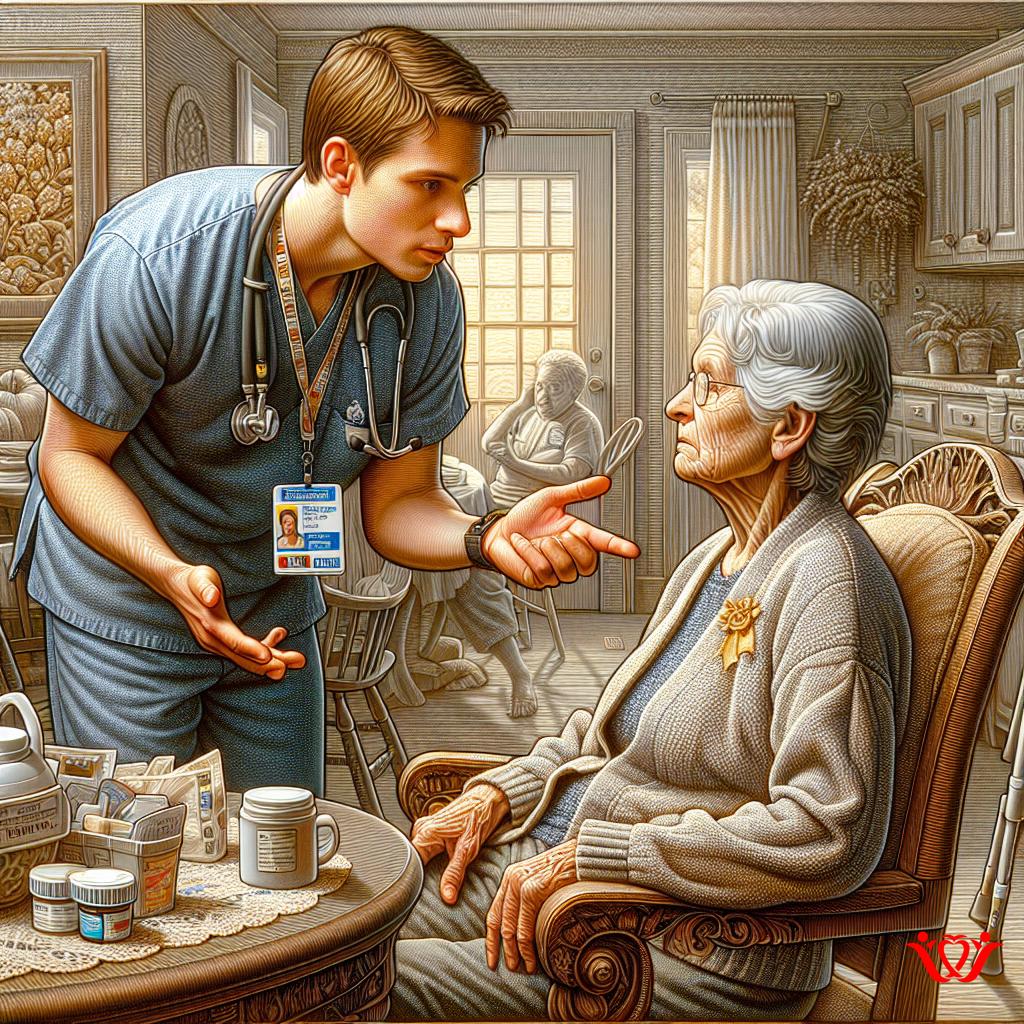
The Unspoken Realities of Home Health Care
Starting a career as a home health aide (HHA) is incredibly rewarding. You’re making a real difference in people’s lives, providing essential care and support. However, there are aspects of the job that aren’t always discussed during training. Understanding these beforehand can significantly improve your experience and help you thrive.
Time Management: The Silent Challenge
Efficient time management is paramount. You’ll often juggle multiple tasks and clients, each with unique needs and schedules. Learning to prioritize effectively is key.
Tips for Better Time Management:
- Use a planner or digital calendar to schedule appointments and tasks.
- Allocate realistic timeframes for each task, accounting for travel time between clients.
- Learn to say no when your workload becomes overwhelming. Your well-being is important.
Building Rapport: More Than Just Care
Providing excellent care involves more than just the technical aspects. Building strong relationships with your clients is essential for success. It’s about understanding their personalities, preferences, and anxieties.
Strengthening Client Relationships:
- Active listening is key. Pay attention to what your clients say, both verbally and nonverbally.
- Show genuine empathy and respect. Treat each client as an individual with unique needs.
- Find common ground. Discover shared interests to build a connection beyond the caregiver-client dynamic.
Navigating Difficult Situations: Handling Challenges Gracefully
Not every day will be easy. You may encounter challenging behaviors, difficult family dynamics, or emotionally demanding situations. Preparation is crucial.
Strategies for Difficult Situations:
- Maintain your composure. Responding calmly and professionally is essential.
- Communicate openly with your supervisor. They can offer guidance and support.
- Remember your boundaries. It’s okay to ask for help or to decline tasks that are beyond your scope of practice.
Self-Care: Protecting Your Physical and Mental Well-being
The demands of home health care can be physically and emotionally taxing. Prioritizing your own well-being is not a luxury, it’s a necessity. Burnout is a serious risk in this field.
Essential Self-Care Practices:
- Maintain a healthy diet and exercise regularly.
- Get enough sleep. Adequate rest is vital for both physical and mental health.
- Make time for activities you enjoy. Hobbies and social connections can help reduce stress.
- Utilize employee assistance programs (EAPs) offered by your agency.
Advocacy and Communication: Your Voice Matters
Effectively communicating with clients, their families, and your supervisor is paramount. You are an important part of the care team and your observations are valuable.
Effective Communication Strategies:
- Maintain clear and concise documentation. Accurate records are essential for continuity of care.
- Communicate changes in your client’s condition promptly to your supervisor.
- Advocate for your clients’ needs when necessary. You play a crucial role in ensuring they receive the best possible care.
Legal and Ethical Considerations: Understanding Your Role
Home health aides operate within a specific legal and ethical framework. Understanding these boundaries is critical to avoiding potential problems. Always adhere to agency policies and procedures.
Key Considerations:
- Maintain client confidentiality. Protect sensitive information at all times.
- Understand your scope of practice. Do not perform tasks you are not trained or licensed to do.
- Report any suspected abuse or neglect immediately.
- Familiarize yourself with HIPAA regulations and your agency’s privacy policies.
Continuing Education: Growth and Development
The field of healthcare is constantly evolving. Investing in continuing education demonstrates professionalism and allows you to refine your skills. Many agencies provide opportunities for professional development; take advantage of them!
Opportunities for Growth:
- Attend workshops and seminars.
- Complete online courses.
- Seek out mentorship opportunities.
- Consider pursuing further education and certifications.
Networking and Building Connections: Your Professional Community
Building a professional network is beneficial throughout your career. Connecting with other HHAs and healthcare professionals can provide valuable support, insights, and opportunities. Attend industry events or join online communities.
The Long-Term Perspective: A Rewarding Career Path
A career as a home health aide offers immense personal and professional fulfillment. By understanding the challenges and embracing the opportunities, you can build a successful and rewarding career helping others.










0 Comments